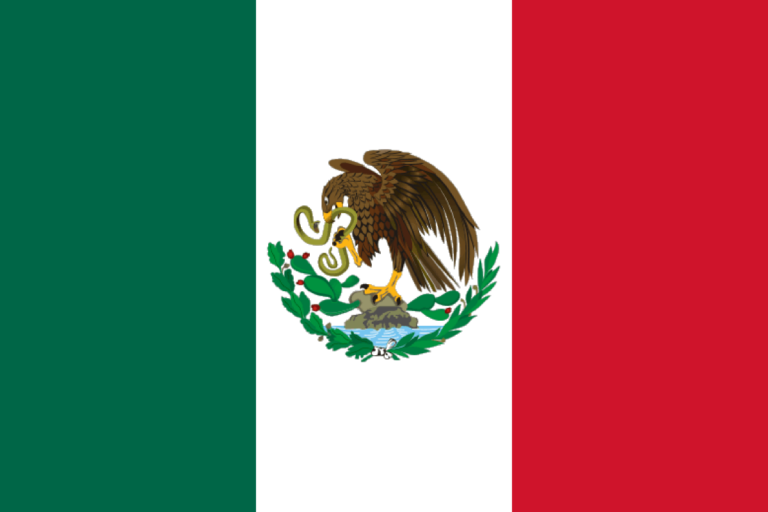January 6, 2003
Volume 5/ Number 1
Dear Colleague:
A growing number of governments are questioning the wisdom of supporting the U.N. Population Fund (UNFPA). As the UNFPA continues to distort the U.S. State Department’s findings that it supports forced abortion in China, new evidence has surfaced showing that UNFPA supports involuntary sterilization in Mexico.
Steven W. Mosher
President
ACTION ITEM: I’ll be debating Population Connection (Zero Population Growth) on National Public Radio stations from 7:30-8:30 p.m. EST, Tuesday, January 7, 2003. Please call in at 800-856-8900 to discuss whether UNFPA should receive your tax dollars.
UNFPA Supports Forced Sterilization in Mexico
On the heels of reports of massive financial and programmatic mismanagement within the United Nations Population Fund (UNFPA),1 an independent investigation has found that UNFPA also supports involuntary sterilization and coercive family planning in Mexico.
An official body of the Mexican government, the National Human Rights Commission (NHRC), recently denounced coercion in family planning programs throughout Mexico.
According to the NHRC, “Public health servants have imposed methods of family planning on the native population without their consent and without informing them of the risks.”2 The NHRC has also found that family planning officials “threaten men and women who do not accept a method of family planning,” and that family planning officials deprive men and women of other “medical services” in order to force them to prevent births.3
The NHRC report follows an in-depth investigation of coercive population control programs in Mexico which reveals that UNFPA supports covert abortion, coercive family planning, and involuntary sterilization through the National Population Council of Mexico (CONAPO).
Under the guise of principles of voluntarism, articulated in the Program of Action of the International Conference on Population and Development (ICPD), UNFPA works in Mexico with CONAPO to achieve “population and development objectives”4 through programs that target the poor and victimize women.
UNFPA’s “population objectives” in Mexico include reducing births and lowering Mexico’s overall population by 2015. Through CONAPO, located in Mexico City, (which UNFPA supports with financial, strategic, technical and medical support), national quotas for family planning users are established then assigned to regional hospitals to be fulfilled by teams of local family planning workers.5 Should doctors or health workers fail to achieve assigned quotas, threats and punishments such as loss of pay or employment are imposed on them. Over 40 case studies of victims were obtained in Mexico this summer, including testimonies which note the following abuses:
- Covert abortion, in the name of “normalization of menstruation,” forced on women without informed consent; • Clandestine placement of IUDs; • Forced signing of “informed consent” documents in order to sterilize victim;
In one alarming case, a woman testified that, while undergoing a caesarian delivery, her fallopian tubes were ligated (tied) without her foreknowledge or consent.6
UNFPA conceals its support of coercion behind a variety of masks, including ICPD “voluntarism.” According to UNFPA, UNFPA and CONAPO provide “intervention models” aimed at “vulnerable groups” of Mexico’s population. In practice, however, such “intervention” may include using the pangs of childbirth to extort signatures from “vulnerable” women on sterilization consent forms.7
The UNFPA/CONAPO program is based on the wrongheaded notion that reducing the fertility of the poor will somehow jumpstart economic development, a theory with no empirical support. But it is in pursuit of this chimera that the UNFPA/CONAPO program works vigorously to develop what it calls “innovative” models for expanding “reproductive health services to urban and rural populations living in poverty.”8
Consistent with these findings, the NHRC notes such innovative techniques of coercion as bribing poor men and women with “material goods” and “economic resources” to get them to use contraception.9 Such methods violate established norms of informed consent.
In its recommendations to the Mexican Ministry of Health (MOH), the NHRC demands that human rights and freedoms be restored to the people of Mexico, and that coercive family planning be ended. To date, however, the MOH has not responded to this recommendation.
UNFPA also refuses to denounce or even acknowledge the existence of coercive family planning in Mexico. Instead, UNFPA plans to continue funding coercive family planning. UNFPA has funded Mexico’s family planning program since 1972. In 1997, UNFPA provided $15.5 million to the Government of Mexico and CONAPO. Currently in its fourth cycle of assistance with CONAPO, UNFPA is scheduled to provide $12 million for population control over the next five years.10
As for the U.S. contribution to coercive population control in Mexico, the U.S. Agency for International Development (USAID) has provided over $5 million dollars to “family planning” programs organized by Mexico’s Ministry of Health since 1997. Recently, however, USAID officials report that population funding for Mexico has ended. Instead, USAID is providing funds to the Mexican MOH for basic health and HIV/AIDS programs.
PRI calls on the Fox administration to end coercive population control programs aimed at Mexico’s most vulnerable citizens.
Endnotes
1. Catholic Family and Human Rights Institute (C-FAM), Friday Fax, “Internal UN documents show financial mismanagement at UNFPA, January 3, 2002.
2. ACI, “Birth Control Imposed on Native Mexicans,” 29 December, 2002.
3. Ibid.
4. UNFPA, “UNFPA Proposed Projects and Programs: Recommendation by the Executive Director; Assistance to the Government of Mexico,” 28 January-8 February, 2002, New York.
5. PRI, “How Mexico Treats Its Poor Women,” PRI Review, September-October 2002, p. 3.
6. Ibid.
7. Ibid.
8. UNFPA.
9. ACI.
10. UNFPA.










